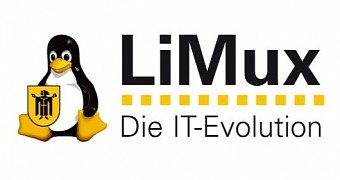After more than 14 years, the City of Munich has decided to switch back to using Microsoft's Windows operating system instead of their Linux-based LiMux OS on more than 6,000 offices.
There were discussions back in February for the German city of Munich to ditch their Ubuntu-based LiMux GNU/Linux distribution, which was used on more than 29,000 computers across over 6,000 offices, for Microsoft's Windows operating system, but now it looks like the city council approved the plan.
The city will spend no less than €50 million to migrate all those computers back to Windows 10 after saving more than €10 million in licensing costs since they first announced their ambitious Linux and Open Source desktop programme back in 2004. They were also using the popular LibreOffice office suite on those computers.
During all this time, it doesn't look like the city's employees managed to completely embrace the open-source operating system and software, so that could be one of the reasons for the rollout to Windows. Munich mayor Dieter Reiter said for the press that he's finally listening to the voices of over 6,000 co-workers.
"We always had mixed systems and what we have here is the possibility of going over to a single system. Having two operating systems is completely uneconomic," said Mayor Dieter Reiter. "I've never said I'm an expert in IT procurement. But I'm backed by 6,000 co-workers who also aren't satisfied with the performance of the existing systems."
The Linux to Windows migration will begin in 2020
While preparations for the Linux to Windows migration will begin early next year, the actual rollout to Windows 10 will start in 2020 for all of the 29,000 computers in over 6,000 offices and will cost the city about €49.3 million euros. This move is part of a wider €89 million IT overhaul and is expected to be completed by 2023.
The city of Munich also plans to migrate their LibreOffice instances to Microsoft Office, but this is still something undecided at the moment because it's a delicate matter due to the fact that they rely on a custom templating system called WollMux and LibreOffice macros, which means someone needs to migrate thousands of templates.
The German city of Munich was a pioneer and inspired numerous other cities in the world to move their computers to an open source operating system that's always free and does not require licenses that cost more than the city can afford to spend on their IT infrastructure. Let's hope that this is an isolated case.

 14 DAY TRIAL //
14 DAY TRIAL //